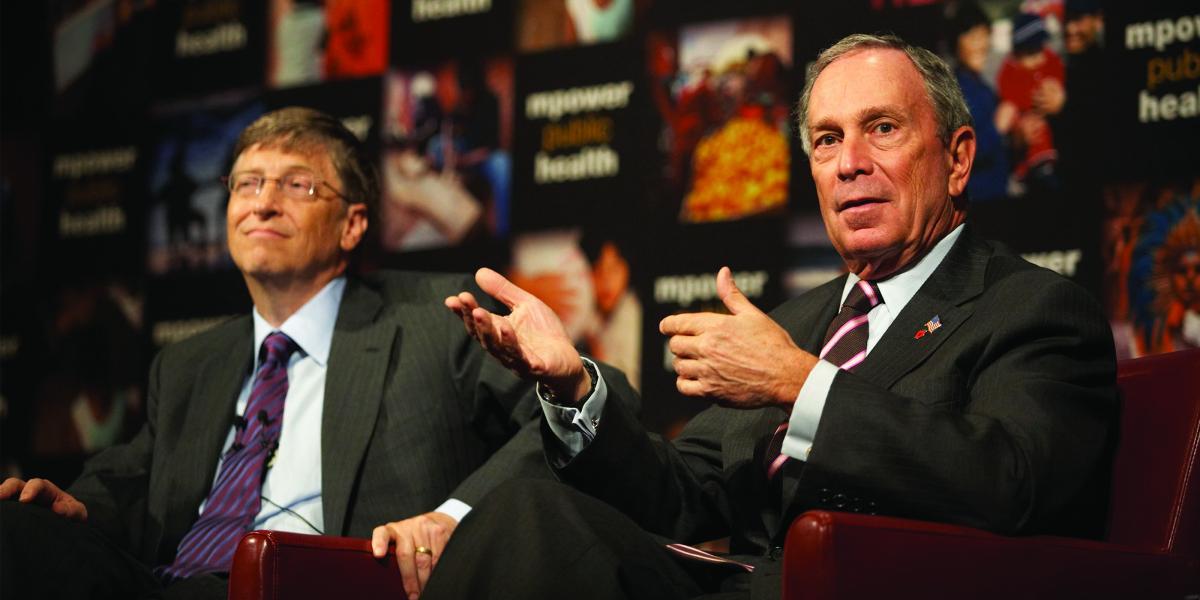Philanthropists Target Tobacco
Mayor Michael R. Bloomberg and Microsoft founder Bill Gates contributed some financial firepower this summer to the global fight against tobacco use with a combined commitment of $500 million toward curbing an epidemic that kills more than 5 million people each year.
At a July 23 announcement in New York, the two public health philanthropists emphasized the urgency of developing tobacco control policies in low- and middle-income countries to counter the world's leading cause of preventable death.
Worldwide there are 1.3 billion smokers. In China alone, there are 300 million smokers.
The mayor's $250 million investment over four years builds on his $125 million grant that in 2006 launched the Bloomberg Initiative to Reduce Tobacco Use, which funds five partner organizations—of which the School's Institute for Global Tobacco Control is one—in their work to implement proven antismoking efforts.
Large portions of the Bloomberg and Gates funds will go toward supporting governments in adopting the effective tobacco control strategies outlined in the WHO-endorsed MPOWER package, including tobacco taxes, protection from secondhand smoke and bans on tobacco advertising and sponsorship.
The Bill & Melinda Gates Foundation will invest $125 million over five years to combat the tobacco epidemic, including a $24 million grant to the Bloomberg Initiative to Reduce Tobacco Use.
"The Bloomberg Initiative to Reduce Tobacco Use has been incredibly innovative, and these new resources will support even more programs that will prevent millions of deaths in coming years," says Dean Michael J. Klag, MD, MPH '87, who attended the announcement in New York.
